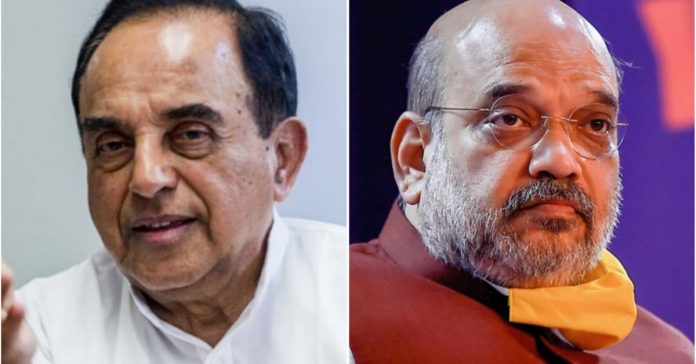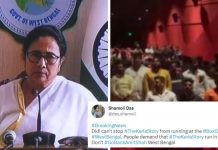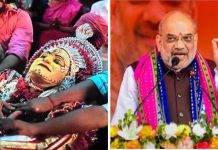
BJP leader and Rajya Sabha MP Subramanian Swamy will not be getting involved in attempts to resolve the ongoing farmers’ protest. Urged to intervene, he implied that the Central administration would not welcome his intervention, citing the lengthy legal battle for the Ayodhya Ram Mandir as an example.
“If Amit Shah wanted me to quit from the Ram Temple litigation in which I got the hearing fixed and on a day to day basis, after pleading my fundamental right to pray, you expect that I will be allowed to settle the farmers’ problem? Let PM settle it unfettered,” he told a Twitter using urging him to get involved.

With more than 70 days of protest and a dozen rounds of talks having failed to resolve the farmer-Centre deadlock over the new farm laws, many have begun looking for alternative solutions. The farmers insist that they will settle for nothing less than the repeal of the laws, while the Centre is willing to put the laws temporarily on hold and bring in some amendments.
But BJP leader and Rajya Sabha MP Subramanian Swamy has a solution of sorts. In a tweet on Tuesday morning, the parliamentarian said that he had had an “informal chat” with around a dozen BJP MPs about the ongoing protest, and suggested that states decide whether the much debated laws will be implemented in their territories. “All MPs agreed,” he added.
But while this idea has found favour with a select few, Swamy appears to believe that his intervention amid the ongoing protest will not be welcomed. It must be noted that while Swamy’s involvement with the current crisis is peripheral at best, he had been an integral part of the Ram Mandir litigation.
A vocal proponent of the efforts to ensure the construction of the Ram Temple, it was Swamy who filed a fresh petition before the Supreme Court in 2016 seeking direction to allow construction of a temple at the disputed site. And while the apex court had, in 2018 disallowed him from intervening in the dispute, the BJP leader had soon after, in February 2019, moved the SC for urgent listing of his plea seeking the enforcement of the fundamental right to worship. Many also credit Swamy for the court’s decision to eventually hold daily hearings.
Source: Free Press Journal


































